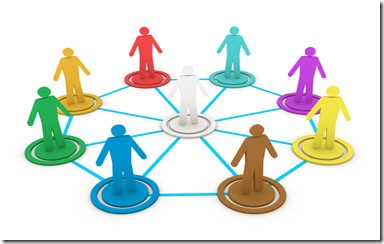Consulting Can Be Harmful To Your Job Search
Candidates often take on consulting jobs while in an active job search. Granted, many need the income and if that is the reason for taking the consulting job I completely understand. However, this may be one reason you are in a job search longer than necessary. This may also be one reason for the roller coaster ride many candidates experience while in a job search.
It isn’t that taking the consulting gig is a bad thing to do. It is the terms of the gig that make it harmful to your real desire, which is to land a new position.
I have seen this happen so many times in my career as a recruiter. Candidates are in a perpetual job search. What happens is that candidates get an opportunity for some short term income with a consulting assignment, and because they really don’t know how consulting works, they jump in as if it is a full-time permanent position. Real consultants would never do this. Most consultants can’t do this because good consultants have more than one client so they can’t devote all of their time to any one client for an extended period of time. Candidates, turned temporary consultant, don’t grasp this.
I find that most candidates really don’t view a consulting gig as a consulting gig. They view it as a job. So in reality, they pull themselves off the job market for whatever period of time the consulting lasts. They put their job search on hold. When the consulting assignment ends they restart their job search again. This on/off job search is very harmful for a number of reasons.
- People begin to view you as a consultant and don’t refer you when a permanent position comes up.
- The timing for a job opening has to coincide with when you aren’t consulting, otherwise you will never find it.
- Networking stops so recruiters and those you would keep in touch with either forget about you, refer someone else they are currently networking with, or assume you must be off the market because you aren’t around anymore. Basically out of sight, out of mind.
So what should you do? You need and want the money from consulting. You want the best of both worlds. Well, this is one time in life when you can have the best of both worlds. I would have said, you can’t have your cake and eat it too, but I never understood that. Since you can’t eat cake you don’t have, what else are you supposed to do with the cake once you have it?
The most important thing you can do if you want to take on consulting roles is behave as a consultant. This means you control your schedule.You have to let the potential client know you are a consultant and have other clients, so you need some flexibility. It doesn’t have to involve a lot of time off, but there will be days when you will be later than others. These are the days you network, schedule meetings with people, attend those networking meetings, let people know you are still looking for permanent work, and make sure you don’t pull yourself off the market. This has to be discussed right up front just like all consulting roles. You can agree on X number of hours per week, but you have to look out for yourself. Agree to the total number per week, not necessarily the time. You must leave some flexibility for continuing your job search. If you don’t, then your job search is on hold.
For those that say, what if the company won’t agree? Then they don’t see you as a consultant. They see you as an unemployed person looking for money. It is your job to position yourself as a consultant in the company’s mind. After all, what if you truly were a consultant with multiple clients, then what would you do? You would negotiate a mutually beneficial relationship.
Don’t let consulting stand in your way of your real objective. If you want a full-time permanent position, then don’t take yourself off the job market. Instead, work with the company as a consultant to ensure the job gets done to the client’s satisfaction and that you too are satisfied.
Help make yourself findable with a great LinkedIn profile. You can use our free LinkedIn profile assessment scorecard to help you. To download your free scorecard CLICK HERE.
Also, join our LinkedIn Job Search Networking Group. There is a wealth of resources there for you. You can even tap into others that are successfully consulting in order to find out how they do it. CLICK HERE to join the group.
I welcome your thoughts and comments.
Brad Remillard






